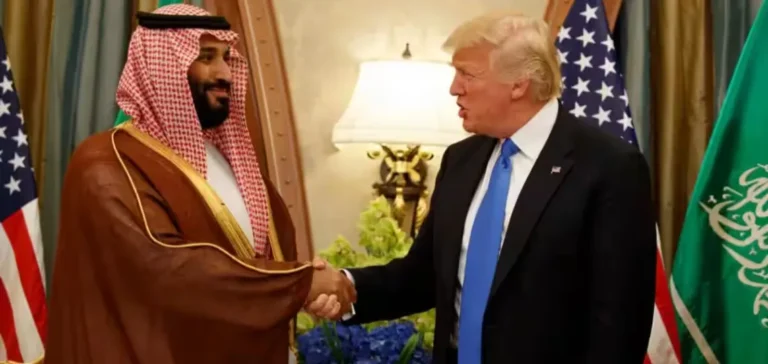The United States and Saudi Arabia have signed a preliminary civil nuclear cooperation agreement during the Washington visit of Crown Prince Mohammed bin Salman, marking the first official meeting at the White House in over seven years. The agreement was signed by US Secretary of Energy Chris Wright, Interior Secretary Doug Burgum, and Saudi Energy Minister Prince Abdulaziz bin Salman.
A civil agreement with limited scope
According to Chris Wright, the agreement includes no provisions for uranium enrichment, an activity often seen as a step toward developing nuclear weapons. He stated that the text focuses solely on bilateral safeguards and a mutual commitment to non-proliferation. Discussions on nuclear cooperation between the two countries have been ongoing for several years, previously stalled due to Saudi resistance to explicitly renounce enrichment or spent fuel reprocessing.
Congress urges vigilance
US lawmakers responded immediately, demanding that any future deal conform to the “gold standard,” a US legal framework prohibiting enrichment and mandating enhanced inspections. Democratic Senator Jeanne Shaheen emphasised that any nuclear engagement with Riyadh must include the Additional Protocol of the International Atomic Energy Agency (IAEA), which strengthens the agency’s ability to verify peaceful nuclear activities.
Regional precedents and ongoing concerns
The United Arab Emirates accepted these strict conditions in 2009 under its own civil nuclear agreement with Washington. Crown Prince Mohammed bin Salman’s 2018 remarks that Saudi Arabia could seek a nuclear bomb if Iran developed one remain a point of concern for US lawmakers.
Internal pressure for stronger guarantees
Senator Ed Markey urged the US administration not to compromise on oversight mechanisms, warning that a deal lacking clear bans on enrichment could undermine non-proliferation efforts in the region. Industry experts also noted that easing standards for Saudi Arabia would make it harder to pressure Iran into abandoning its own nuclear ambitions.
Andrea Stricker, a non-proliferation expert, stated that an agreement limited to civil energy and reactor cooperation would be consistent with US commitments.






















